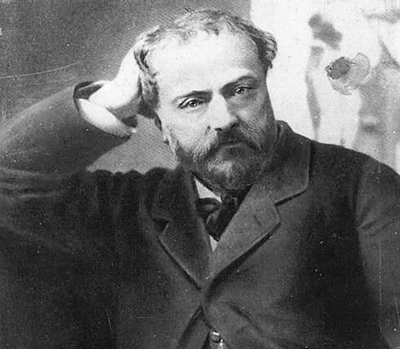Benjamin Britten

- Born: November 22, 1913, Lowestoft, Suffolk, England
- Died: December 4, 1976, Aldeburgh, Suffolk, England
“Four Sea Interludes” from Peter Grimes, Op. 33a
- Composed: 1944–45
- Premiere: June 7, 1945, London, Reginald Goodall conducting
- Duration: approx. 17 minutes
Peter Grimes, one of the most characteristically English of all operas, was born in California. Benjamin Britten had followed his friend, the poet W.H. Auden, to the United States in 1939, both to find greater artistic freedom and to escape the frustration and depression of the European political situation. Britten was also an avowed pacifist, and he viewed the American sojourn as a time when he could sort out his feelings and decide what his stance should be as his country headed inexorably into war. During a holiday in California in summer 1941, Britten chanced upon a back issue of The Listener, the periodical of the British Broadcasting Corporation, which contained an article by E.M. Forster on the poet George Crabbe (1755–1823). The article led Britten to Crabbe’s poem "The Borough," which dealt with the rugged life in the fishing villages of the region in Suffolk, where the composer had grown up. Overwhelmed by homesickness, he wrote, “I suddenly realized where I belonged and what I lacked. I had become without roots.” The seed for Peter Grimes had been sown.
On January 2, 1942, Britten was in Boston for a performance of his new Sinfonia da Requiem. Sergei Koussevitzky, conductor of the Boston Symphony, inquired about the composer’s plans and asked him if he was considering writing an opera. Britten said he was, that he even had a subject in mind, but that it was financially impossible for him to set aside the time required. Koussevitzky, who had established a foundation to commission new musical works in memory of his late wife, Natalie, assured Britten that the foundation would help subsidize the composition, so, when Britten was finally able to book passage to England that spring, he had a firm commission in hand. Shortly after his return home, Britten appeared before the Tribunal of Conscientious Objectors and was exempted from active military service. Instead, he performed in hospitals, shelters and bombed-out villages while he continued to compose during those difficult years.
As for Grimes, Montagu Slater was engaged to write the libretto and worked on it from June 1942 until the end of the following year. Britten began work as soon as the libretto was completed. Since his home village on the east coast of England was in danger of air attack, he carried the manuscript pages of his opera with him whenever he was out, so that he could save them from being burned should the village be bombed. Peter Grimes was put into rehearsal by the Sadler’s Wells Company early in 1945, with its premiere planned for the return of that organization to its own auditorium, which had been bombed in 1942. The date was set for June 7. The announcement of the production generated tremendous excitement, not only because of the resurrection of the venerable Sadler’s Wells, but also because it marked the premiere of the first important British opera in many years. The opening night was a triumph and established Britten as one of the 20th century’s leading composers.
The story of the opera deals with Grimes’ relationship to his community. Grimes, a fisherman, has had one apprentice die under suspicious circumstances, and, though a court trial has officially cleared him of guilt, the rumors in the village persist. One of the few who support him is the schoolmistress, Ellen Orford, and Grimes believes all will be well if he could only marry her. Grimes takes another apprentice and, despite Ellen’s pleadings, treats the boy roughly. The villagers decide to take the law into their own hands, and their march on Peter’s shack produces such excitement that the boy, in running to assess the trouble, slips over the cliff to his death. Balstrode, Grimes’ only other friend, arrives ahead of the mob, and advises Peter to sail his boat into the sea and scuttle it, taking his secrets and his unhappiness to a watery grave.
The Four Sea Interludes not only set the moods for the scenes to follow but also reveal the conflicts and motivations of the characters. The first, Dawn, describes the somber atmosphere of the little fishing village at daybreak as the men begin their day’s work. Its craggy sonority also suggests the harsh, continuing struggle of the villagers against the forbidding natural forces that shape their world. Sunday Morning portrays, with a certain sullen numbness, the call to worship on the day of rest. Church bells, large and small, echo through the town. Three times the sweeping arch of Ellen’s song (“Glitter of waves and glitter of sunlight”), a broad theme begun by violas and cellos, soars above this background tintinnabulation. Moonlight paints the scene of the village at night with music of troubled restlessness. Storm describes not only the frightening wind and waves crashing upon the shore, but also the tempest raging in Peter’s troubled soul.
—Dr. Richard E. Rodda